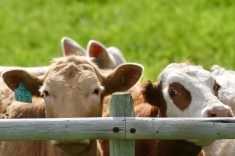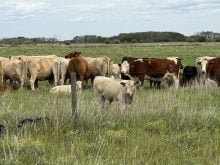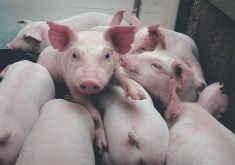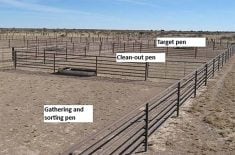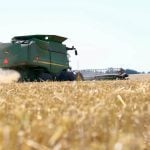A batch of sheep is traced using a system that keeps a record of transactions across a network of linked computers
The Canadian Sheep Federation has proven that sheep can be successfully tracked from pasture to plate using blockchain technology.
In a proof-of-concept field trial, animals originating at Brookwater Farms in Prince Edward Island were tracked through shipping and processing at Northumberland Lamb, a sheep co-op in Truro, N.S.
Such livestock traceability isn’t unusual. The unusual aspect lies in the successful use of blockchain, indicating its potential for wider use and application to not only track livestock but to provide a variety of information on breed, production management, feed, veterinary care, assurance program compliance, processing, carcass yield, grading and other aspects that might be desired by producers, processors or consumers.
Read Also
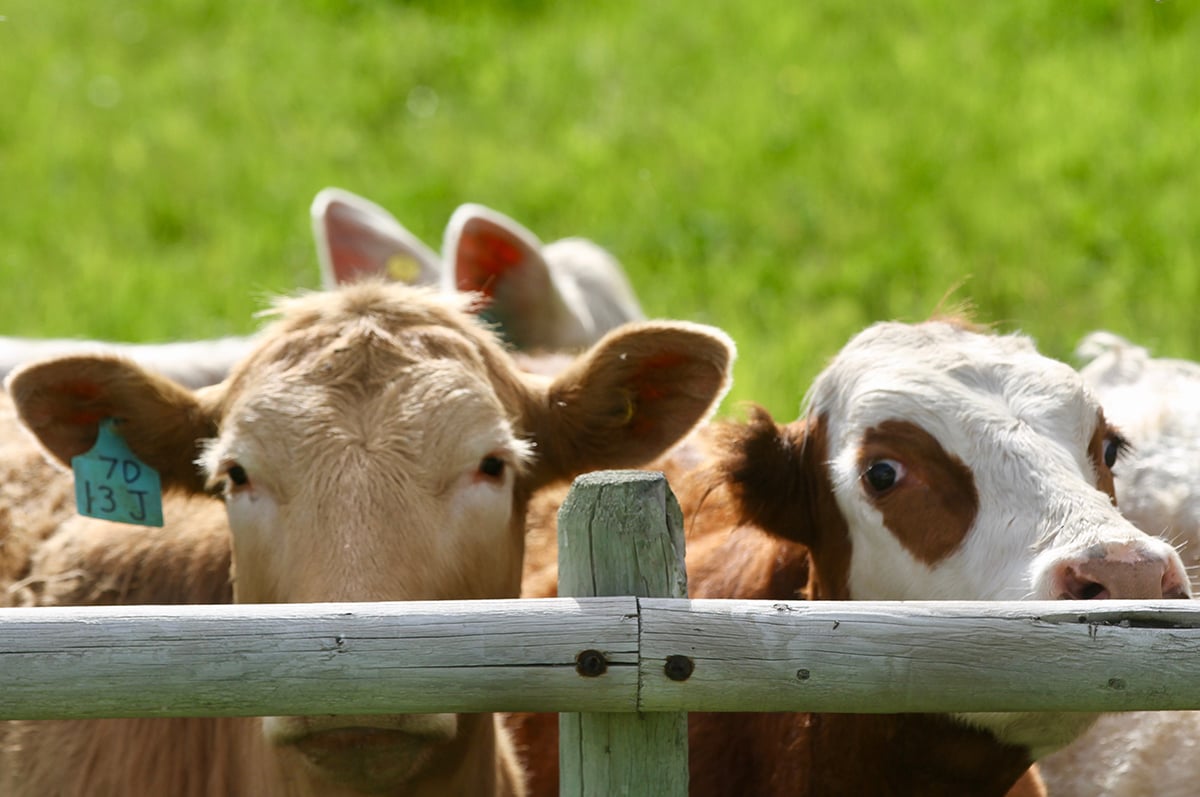
Feeder market consolidates at historic highs
For the week ending Sept. 6, Western Canadian feeder cattle markets were relatively unchanged compared to seven days earlier.
“We’re really excited about the possibilities this could provide for our industry,” said Corlena Patterson, executive director of the Canadian Sheep Federation.
“The attempt is not to get everybody … to conform to one type of production. This is the type of technology that will benefit everybody regardless of where they are or how they raise lambs or what sort of product they’re trying to put out there. It will benefit everybody individually and everybody entirely.”
Blockchain is a system that keeps a record of transactions across a network of linked computers. Those transactions can’t be tampered with and they provide a transparent record of information relative to, in this case, sheep production.
In the trial, radio frequency identification tags already applied to sheep at Brookwater Farms were scanned when the animals were loaded onto a trailer. They were scanned again at Northumberland and scanned once more when processing began. At that point the animals were treated as a batch.
“Times were recorded for when the last carcass went to hang in cold storage, when processing and breaking down the carcass into primals and sub-primals began, and finally when packaging finished,” said the project overview posted at beefchain.com/ranches/brookwater-farms.
“This information was recorded using American Certified Brands API, and a data portal was created to view the information.”
Patterson said sheep producers frequently express the desire to get more for their money from traceability requirements — benefits to justify the expense of buying tags and keeping the necessary records.
“The reason we started down this trail was because we do manage that traceability file … and continue to address producers’ want for more value out of traceability,” she said.
“Under a combination of the current regulation and the current technology required in the field and the future requirements for traceability … those requirements are the places where valuable information that can be shared needs to be gathered.”
Thus blockchain has potential to provide more information to producers and can also provide them with ways to reliably communicate with consumers.
“We hear Canadian producers say that they would like an opportunity to demonstrate the value of their Canadian product and to distinguish Canadian product from non-Canadian product. This is an opportunity to bring that to fruition for those producers,” Patterson said.
On the consumer side, blockchain could provide verified information on how animals were raised and whether production methods comply with various assurance programs such as humanely raised, grass-fed or organic. Information could be accessed by scanning a QR code on package labels.
The CSF partnered with SheepChain LLC on the trial. Patterson said the next steps are clear — ”to build that information highway and populate it with the information that folks want to share; that’s not overly complicated to do.”




